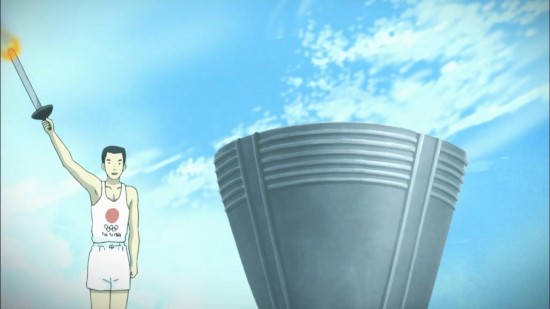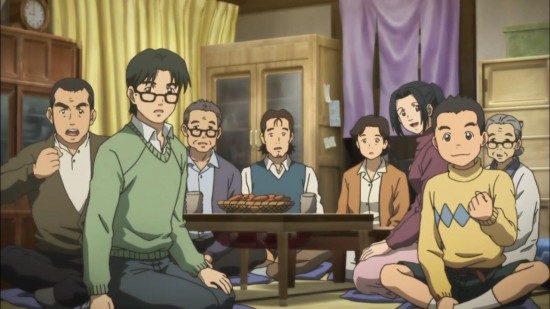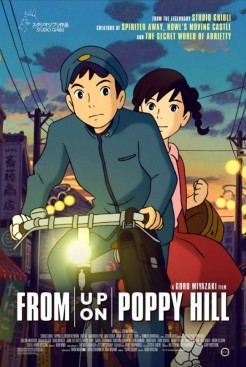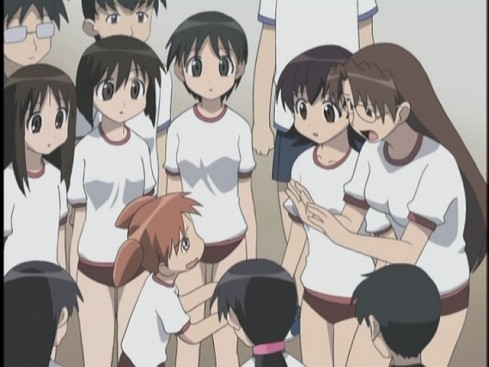Now that Tokyo has been awarded the 2020 Summer Olympics I think that it is a safe bet that we will see a lot of Olympic-themed anime episodes or even entire shows in the next few years.

There have recently been a number of anime references to the 1964 Tokyo Olympics, probably due to the upcoming 50th anniversary.

The 2012 series Showa Monogatari was a slice-of-life about a young boy in Tokyo in 1964 with the excitement over the Olympics providing a constant background buzz.

And of course there was the Studio Ghibli movie From Up on Poppy Hill about high school students in 1964. The games weren’t actually shown but the excitement over them was a driving force in the plot.
The psychological significance of the 1964 games can hardly be exaggerated. After the catastrophic devastation of World War II and the humiliation of a 10-year occupation it finally seemed that Japan had succeeded in rebuilding and could reclaim a place among the world’s first-rank nations.
Japan was still a relatively poor country. Its exports were known for their low cost rather than technological wizardry. The incredible boom years of the 1980s were still far in the future.
But that in itself may be a reason why the Japanese look back on 1964 with particular nostalgia. Everyone knows that the bubble years of the 1980s led to a crash from which Japan his still not fully recovered. The late 1960s and 1970s were marred by violent social protests. By contrast the early 1960s seem like a virtuous period when hard work and social solidarity laid the foundation for national greatness.
A particular source of pride was the introduction of Judo in 1964 as an Olympic sport. As might be expected, Japan won gold medals in 3 of the 4 weight classes. However in the most prestigious “open” weight class the audience was disappointed to see the Japanese champion Akio Kaminaga defeated by a gigantic Dutchman named Anton Geesink. (We all know that Judo allows a small man to throw a larger one but when the opponents are equally skilled the bigger and stronger contender will still have the advantage.) Yet when Geesink acknowledged his defeated opponent with a traditional Japanese bow, the stadium filled with cheers at this sign of respect for Japanese culture.
The Japanese team also won the gold in Women’s Volleyball and the matches were broadcast repeatedly on Japanese television. Audiences were fascinated by the tight legless shorts worn by some of the European teams. They seemed remarkably futuristic and efficient.

As a result schools all over Japan adopted these buruma (“bloomers”) as standard equipment for girls’ athletics. This tradition continued for several decades. However in the 1990s most schools abandoned these garments in the face of protests by female students, supported by mothers who remembered how impractical and embarrassing they actually were. Nevertheless, even if abandoned in the real world, buruma remain popular in manga and anime.
Today national spirits are depressed by persistent economic stagnation, exacerbated by the devastation of the 2011 earthquake and the Fukushima nuclear disaster. The enthusiasm that has greeted the 2020 Olympics announcement is partly driven by a hope that the 2020 games, as in 1964, will herald another national renaissance.

